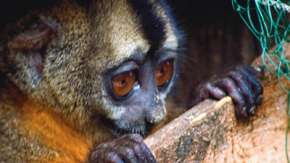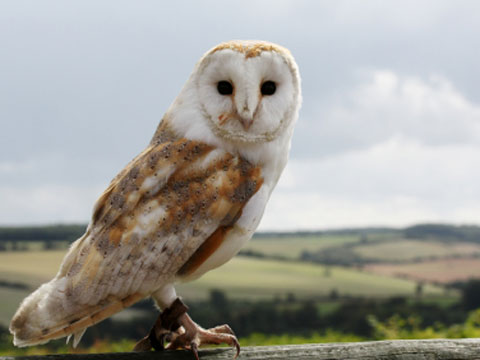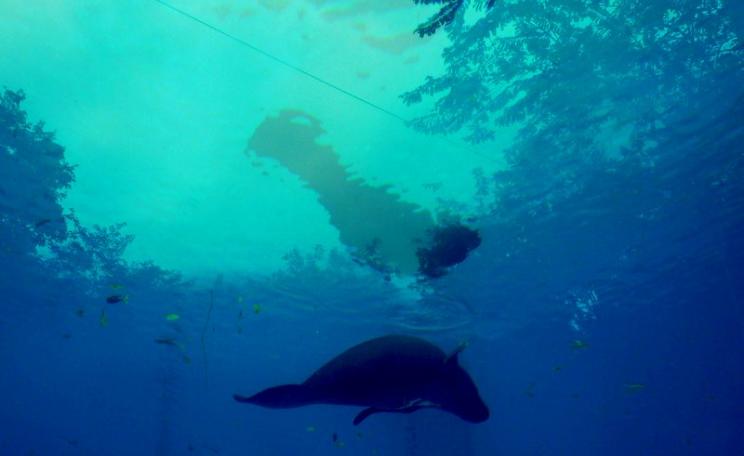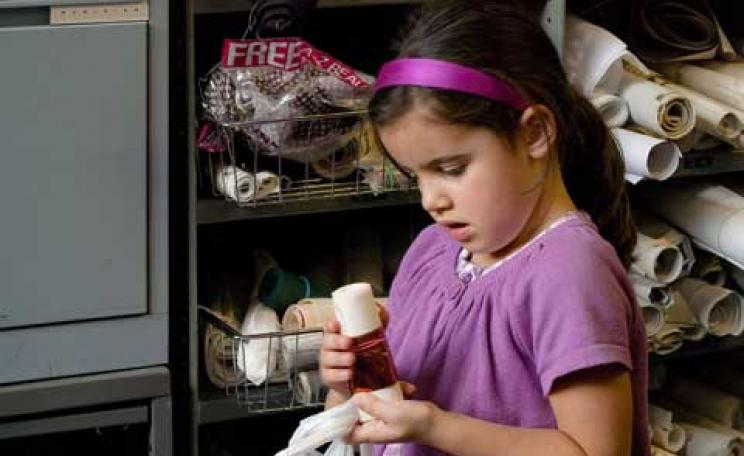Fifteen years ago, wild animal trafficking was a non-issue in Brazil, a country that accounts for 15 percent of this trade, estimated at 38 million animals being poached every year in Brazil alone. In 2010, a single operation that involved the Brazilian police and the environmental agency IBAMA cracked the biggest animal trafficking gang in the country, arresting 32 people and recovering 10,000 birds and eggs, including many rare macaws that can reach up to £50,000 in Europe.
Behind this and many other successful operations is the tireless work of the Brazilian NGO RENCTAS, the National Network to Fight the Trafficking of Wild Animals. 'The beginning was not easy. We soon realised that there was little information about animal trafficking among the population and that the trade network was much bigger and complex than we had imagined,' says chief executive Raulff Lima. 'Confronting the animal trafficking in Rio de Janeiro was seen as a huge provocation. We received many serious life threats, but we remained true to our ideals. In 2000, we moved to the capital Brasilia, where we founded RENCTAS. Today, our work is widely recognised, which gives us certain protection against personal threats.'
Lima believes that 40 percent of the animals captured in Brazil end up in foreign countries, such as the US, the UK, Germany, Holland and Japan. But, he recognises that there is also a big internal demand for wild animal products: 'We need to stop this cultural habit of consuming wild animals as a culinary delicacy that many Brazilians still have. We need to stop this "cage culture", this tradition of keeping wild birds in cages as pets,' he says.
In addition to a change in local cultural habits, a more specific environmental legislation, able to punish the big traffickers with more severity, would definitely help to end this illegal trade, says Lima. 'Corruption also plays an important role in animal trafficking,' he adds. 'Gangs act in a very similar way, regardless of the country. They often have a network of contacts within local governments and official agencies that are happy to use their political influence in exchange for money.'
Traffickers cruel practices
 The transportation conditions of captured animals are so cruel and precarious that only one out of ten animals survives the journey. 'Traffickers operate in the Amazon and in other biomes [ecosystems], especially around deforestation areas. Rural and indigenous communities are often targeted to capture the animals, because of their local knowledge and poor social conditions. Traffickers even lure children to do this job. The animals are then smuggled in boats, buses and small planes, before being sold in markets, pet shops, but especially on the Internet, using social networking websites. Even delivery services and the mail are used to send the animals to the buyers across Brazil.'
The transportation conditions of captured animals are so cruel and precarious that only one out of ten animals survives the journey. 'Traffickers operate in the Amazon and in other biomes [ecosystems], especially around deforestation areas. Rural and indigenous communities are often targeted to capture the animals, because of their local knowledge and poor social conditions. Traffickers even lure children to do this job. The animals are then smuggled in boats, buses and small planes, before being sold in markets, pet shops, but especially on the Internet, using social networking websites. Even delivery services and the mail are used to send the animals to the buyers across Brazil.'
According to Lima, there are roughly 400 gangs profiting by the wild animal trade in South America. Often, these gangs are involved or connected with drugs, arms and precious stones traffic, generating millions of pounds. 'Wealthy collectors are the biggest buyers in the international market, who often prefer endangered and rare species. The Spix's Macaw (Cyanopsitta spixii), a Brazilian endemic species recently extinct in the wild, is a good example of the biodiversity loss our country is suffering. Today, there are only seven birds in Brazil, while about 70 are kept in Asia and Europe,' says Lima.
Although birds are the most sought animals among collectors, reptiles, mammals and fish are also targeted by traffickers. But this is not all. Brazil's exuberant biodiversity is also in the focus of scientific research. Biopiracy accounts for the second biggest international market in the illegal trade of wild animals, targeting insects, spiders, frogs and snakes, which are easier to smuggle than bigger animals. The Brazilian Wandering Spider (Phoneutria nigriventer), for instance, produces a potent venom containing neurotoxins that are being investigated to produce a new range of pain killers. On the black market, one gram of this venom can raise £2,500 for the traffickers. Biopiracy is supported by discrepancies in international accords. Sometimes, animals leave one country illegally but arrive at their final destination legally, because trafficking gangs are often skilled at forging documents, bribing public officials and exploiting the weaknesses of the law.
According to RENCTAS, threatened animals now number more than 600 species in Brazil, a figure that has doubled in the last 15 years thanks to the illegal trade. In addition to its negative effects on biodiversity, animal trafficking is also a cause for the transmission of diseases among local communities, as wild animals are vectors for many virus and bacteria. 'The list of diseases wild animals can transmit to humans is huge, from rabies to more dangerous and little known zoonosis, which can become epidemics. It is important to inform the public that, by buying a wild animal, they are not only going against the law and damaging the environment, but also putting their health at risk.'
Making progress
 Projects of environmental education have been at the centre of RENCTAS's actions since its foundation. The organisation works in partnerships with schools, universities, and the private sector to produce educational campaigns and materials aimed at children and adults.
Projects of environmental education have been at the centre of RENCTAS's actions since its foundation. The organisation works in partnerships with schools, universities, and the private sector to produce educational campaigns and materials aimed at children and adults.
But RENCTAS has also played an important role alongside official governmental bodies in the fight against the illegal trade. Lima explains: 'We published the very first report on animal trafficking in Brazil, in 2001. This was an important milestone not only for our organization. With the results of our report, the Brazilian government publicly recognized, for the first time in history, the existence of a trafficking network that was threatening the national biodiversity.' Lima also recalls the international acknowledgement from the United Nations: 'Our work received another important recognition in 2003, through the UNEP Sasakawa Prize, which is considered the world's most prestigious environmental award.'
In 2005, RENCTAS commissioned an opinion poll to identify the concerns and level of environmental awareness among Brazilians. The poll involved 2,000 people from diverse age groups, geographic regions, as well as cultural and socio-economical backgrounds. According to 75 percent of the people, Brazil's biodiversity is under risk of international plunder. Figures also showed that 84 percent are aware that either buying or keeping wild animals in captivity is a crime punished by the Brazilian legislation. However, 30 percent admitted to have or have had a wild animal at home.
Despite the corruption of some officials and the cultural habits of the population, Lima believes that animal trafficking in Brazil is now being taken more seriously than it was a decade ago. 'The Brazilian Police has been doing a great job of investigation and apprehension of wild animal traffickers. Ten years ago, the police would be very much criticised by the public for using public resources in the combat of illegal animal trade. In those days, most people would think that environmental crime was something minor, when compared to other offences. Now, the public is much more aware of the threat to wild life by the trafficking, not only supporting the police actions, but also taking an active part by denounce the traffickers.'
Giovana Zilli is a freelance journalist
| READ MORE... | |
 |
HOW TO MAKE A DIFFERENCE Environmental Investigation Agency: meet the original eco spooks The EIA has been at the forefront of investigative campaigning for over 25 years, tackling the illegal wildlife trade, timber trafficking and ozone-depleting CFCs. Matilda Lee gets a debriefing |
 |
HOW TO MAKE A DIFFERENCE The Thin Green Line: park rangers risking their lives After 10 years as a park ranger, Sean Willmore packed up his life and took to the road to record the experiences of his fellow rangers around the globe. The result is a revealing and inspiring documentary |
 |
INVESTIGATION EU wild-parrot scandal A decade and a half after conservationists wrung from the European Parliament a commitment to end the trade, the EU remains the largest importer of parrots in the world. |
 |
INVESTIGATION Monkey business - a brutal Amazonian trade in Owl Monkeys Peter Bunyard on the battle against malaria, a fallen hero of the Colombian medical establishment and the mysterious fate of thousands of unique primates. |
 |
HOW TO MAKE A DIFFERENCE How to get involved in wildlife conservation From joining campaigns groups to making your garden more wildlife friendly, there are many ways to get involved with saving the natural world. Read on for inspiration... |








